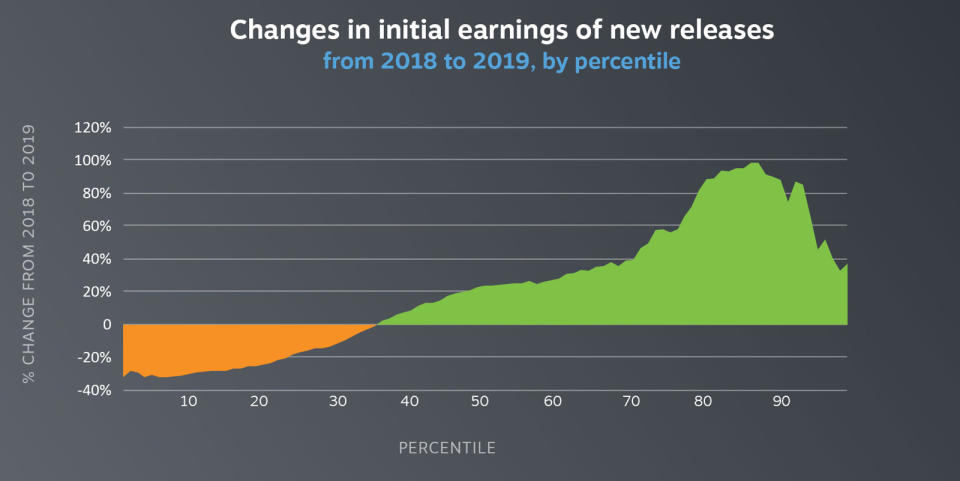Steam's direct publishing changes only helped two thirds of developers
Many games earned more, but a third of them earned less.
How well is Valve faring with its current approach to direct publishing on Steam? It’s doing well, for the most part — but things aren’t all rosy for some studios. Valve has published a “data deep dive” for sales of paid games, revealing that the first full year of Steam Direct led to a 24 percent increase in initial earnings (the first two weeks) for the median game in 2019 versus 2018. That sounds good at first blush, but Valve noted that the figures varied wildly depending on a game’s overall ranking.
Titles in the 75th percentile (that is, making more than 75 percent of new releases) earned a whopping 56 percent more in 2019 than in 2018. However, those below the 35th percentile actually earned less — about 17 percent less if they were in the 25th percentile. Many game studios thrived under Steam Direct, in other words, but those that didn’t tended to struggle.
Valve did note that there were many more games earning at least $10,000 in initial sales starting from 2014, the year after it opened publishing to many more developers, but that was largely because there were more games on Steam to begin with. There was an 11 percent hike in games meeting that threshold of success in 2019, however, so it’s not due solely to the sheer volume of titles reaching the service.
The company plans to take a “closer look” at the factors behind the results to make sure it wasn’t hindering the success of those titles under the 35th percentile mark. It also deliberately excluded free-to-play games from the deep dive, as it didn’t believe initial sales were a good benchmark for those releases. If these results are any indication, though, there may be some work necessary to ensure that more game creators succeed — and that the indies you like have a reason to stick with Steam instead of switching to rivals like the Epic Games Store.

